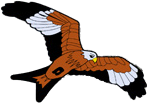Early Years Outcomes
Early Years Foundation Stage (EYFS)
Mathematics is a specific area in the EYFS curriculum, with two early learning goals pertaining to it. It involves providing children with opportunities to develop and improve their skills in counting, understanding and using numbers, calculating simple addition and subtraction problems; and to describe shapes, spaces, and measures. It is delivered through planned, purposeful play and directed activities with a balance between the acquisition of knowledge and understanding and the development of investigational skills.
Breadth of Study
By the end of their Reception year children are expected to:
- Count reliably with numbers from 1 to 20, place them in order and say which number is one more or one less than a given number.
- Using quantities and objects, add and subtract two single-digit numbers and count on or back to find the answer.
- Solve problems, including doubling, halving and sharing.
- Use everyday language to talk about size, weight, capacity, position, distance, time and money to compare quantities and objects and to solve problems.
- Recognise, create and describe patterns.
- Explore characteristics of everyday objects and shapes and use mathematical language to describe them.
